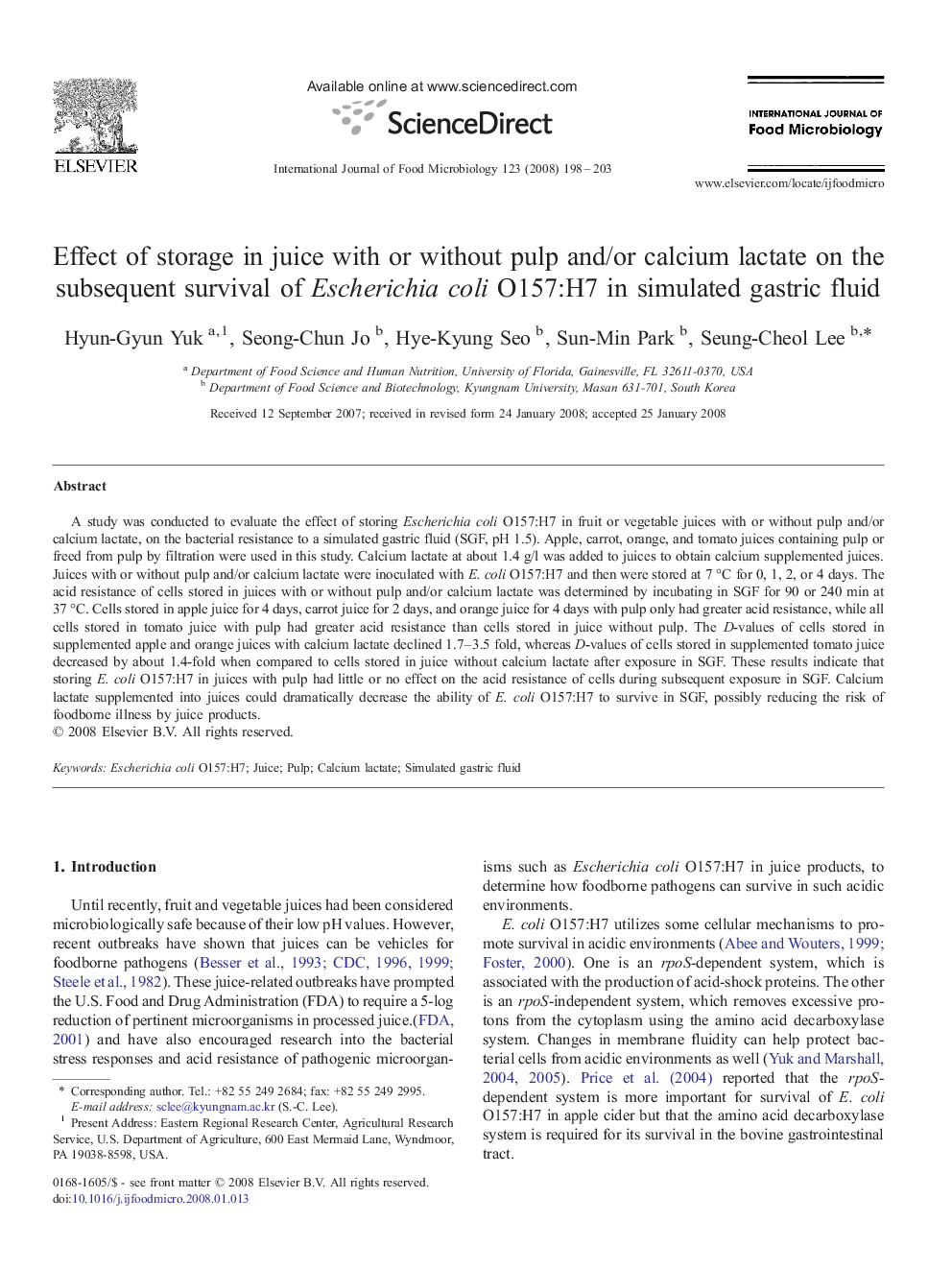| Article ID | Journal | Published Year | Pages | File Type |
|---|---|---|---|---|
| 4369227 | International Journal of Food Microbiology | 2008 | 6 Pages |
A study was conducted to evaluate the effect of storing Escherichia coli O157:H7 in fruit or vegetable juices with or without pulp and/or calcium lactate, on the bacterial resistance to a simulated gastric fluid (SGF, pH 1.5). Apple, carrot, orange, and tomato juices containing pulp or freed from pulp by filtration were used in this study. Calcium lactate at about 1.4 g/l was added to juices to obtain calcium supplemented juices. Juices with or without pulp and/or calcium lactate were inoculated with E. coli O157:H7 and then were stored at 7 °C for 0, 1, 2, or 4 days. The acid resistance of cells stored in juices with or without pulp and/or calcium lactate was determined by incubating in SGF for 90 or 240 min at 37 °C. Cells stored in apple juice for 4 days, carrot juice for 2 days, and orange juice for 4 days with pulp only had greater acid resistance, while all cells stored in tomato juice with pulp had greater acid resistance than cells stored in juice without pulp. The D-values of cells stored in supplemented apple and orange juices with calcium lactate declined 1.7–3.5 fold, whereas D-values of cells stored in supplemented tomato juice decreased by about 1.4-fold when compared to cells stored in juice without calcium lactate after exposure in SGF. These results indicate that storing E. coli O157:H7 in juices with pulp had little or no effect on the acid resistance of cells during subsequent exposure in SGF. Calcium lactate supplemented into juices could dramatically decrease the ability of E. coli O157:H7 to survive in SGF, possibly reducing the risk of foodborne illness by juice products.
